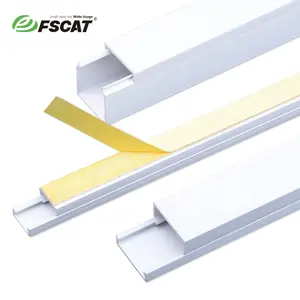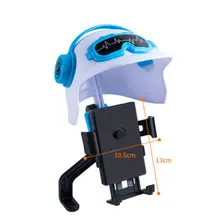What are Power Cables
Power cables are critical components in the infrastructure of modern electrical systems, responsible for the transmission and distribution of electric power. These cables come in various sizes and specifications, tailored to carry electrical currents to a wide range of devices, from small handheld gadgets to large industrial machinery. They are designed to safely conduct electricity from a power source to an electrical appliance or to another point within an electrical network, ensuring that consumers and businesses alike can access reliable power.
The construction of a power cable generally involves one or more conductors, typically made of copper or aluminum due to their excellent conductive properties, encased within an insulating material like PVC, PE, or XLPE that prevents electrical leakage and protects against environmental factors. Some power cables may also include additional protective layers or shielding to guard against external electromagnetic interference and physical damage, particularly for cables used in harsh environments or outdoor applications.
Operating on the simple principle of providing a pathway for electrical flow, power cables must be selected based on their intended use—ranging from powering small consumer electronics to ensuring the functionality of critical infrastructure in power stations. The choice of cable is determined by factors such as voltage level, current-carrying capacity, environmental conditions, and regulatory standards. Businesses that rely on consistent and safe power delivery use these cables extensively in various applications such as construction projects, industrial setups, computer networks, home appliances, and many more.
Types of Power Cables
Within the diverse array of power cables available on the market, each type serves a specific purpose and comes with its own set of common uses:
Low-Voltage Power Cables: These are commonly used in residential and commercial buildings for distributing electricity to outlets and appliances. They are typically rated up to 1 kV and can be found in homes, offices, and small-scale industrial settings.
High-Voltage Power Cables: These cables are designed for transmission of electricity over long distances at high voltages, often exceeding 1 kV. They are essential for power stations and grid infrastructure, ensuring that electricity can be transported efficiently from generation sites to sub-stations.
Control Cables: Utilized in industrial settings for controlling the operations of machines on the factory floor. These cables connect to control units and facilitate communication between devices.
Coaxial Cables: Although not exclusively for power supply (as they are often used for signal transmission), some coaxial cables can also supply power to devices such as amplifiers or satellite dishes.
Direct Buried Cable (DBC): Specially designed with robust insulation and protective layers for installation underground without additional covering. They're commonly used in outdoor lighting systems, transmission lines, and other applications requiring protection from the elements.
Armored Cables: These come with an additional layer of protection which is usually made of metal. This armor protects the cable from mechanical damage. It's suitable for use in environments where the cable may be subjected to physical stress or damage.
These are just a few examples; many other special-purpose power cables cater to specific industries or applications like marine, automotive, aerospace, and renewable energy sectors.
How to choose Power Cables
Selecting the right power cable is a crucial decision for any business that requires a reliable electrical system. When choosing power cables on Alibaba.com for commercial use or resale purposes, consider the following factors:
Voltage and Current Requirements: The cable must be able to handle the voltage level and current that it will carry without overheating or degrading over time. This ensures safety and longevity of both the cable and the equipment it powers.
Environmental Conditions: If the cable will be used outdoors or in harsh environments with exposure to chemicals, moisture, or extreme temperatures, it must have suitable insulation material like XLPE or robust protective layers.
Conductor Material: Copper is highly conductive but more expensive than aluminum. Choose based on budget constraints and the specific conductivity requirements of your application.
Insulation Material: The choice between PVC, PE, and XLPE will depend on factors such as thermal stability needs and resistance to chemical or environmental damage.
Certifications and Standards Compliance: Ensure that the cables meet local and international safety standards relevant to your industry for both installation and operation.
Cable Length and Flexibility: Depending on installation needs—whether it's fixed wiring or requires frequent movement—select a cable with appropriate length and flexibility without compromising safety or performance.
By considering these aspects alongside your specific application needs—be it industrial machinery wiring or providing power solutions for consumer electronics—you can identify suitable options from Alibaba.com's extensive selection of wholesale power cables.
Best Power Cables on Alibaba.com
Alibaba.com is a global marketplace where businesses seeking reliable power cable solutions can find a vast selection suitable for any application imaginable. With offerings from over 200,000 suppliers in nearly 5,900 different categories including power cables, this platform stands out as a hub for sourcing robust electrical components critical for operations across various industries such as construction sites, data centers, manufacturing facilities, energy plants, and consumer electronics production.
Choosing Alibaba.com as your source for wholesale power cables means you're choosing variety without compromising quality. Suppliers featured on this platform offer products that cater to stringent industry standards while providing ample options regarding conductor materials like copper or aluminum; insulation materials such as PVC or XLPE; connector types; usage scenarios; colors; functions; packing; and even customizable lengths. This ensures that regardless of your specific requirements—from heavy-duty armored cables for industrial plants to flexible cords for home appliances—you'll find a product that aligns with your needs.
Furthermore, Alibaba.com simplifies international trade by offering user-friendly features like mobile buying options and localized language support. Combine this with services like Trade Assurance—a payment protection service—and it's clear why businesses around the world trust Alibaba.com when it comes to securing their supply chains with dependable products such as power cables. Whether you're outfitting an entire office building or stocking shelves with consumer electronic accessories, Alibaba.com provides you with access to products designed to empower your business's electrical needs effectively.
Common FAQs for Power Cables
What are the primary considerations when selecting a power cable for industrial use?
When selecting a power cable for industrial use, one should consider the voltage and current requirements, environmental conditions it will be exposed to, conductor and insulation materials, regulatory compliance, and the mechanical stresses it might encounter.
How does conductor material affect the performance of a power cable?
The conductor material, typically copper or aluminum, affects a power cable's electrical conductivity and overall performance. Copper conductors offer higher conductivity but are more expensive than aluminum conductors, which are lighter and more cost-effective.
What type of insulation materials are commonly used in power cables?
Common insulation materials for power cables include PVC (Polyvinyl Chloride), PE (Polyethylene), and XLPE (Cross-Linked Polyethylene), each offering different levels of thermal stability, chemical resistance, and durability.
Can power cables be customized to specific lengths and specifications on Alibaba.com?
Yes, many suppliers on Alibaba.com offer customization options for power cables, including specific lengths and specifications tailored to your business needs.
What does 'armored' in armored cables refer to?
'Armored' in armored cables refers to an additional protective layer, usually made of metal, designed to shield the cable from mechanical damage and ensure durability in harsh environments.
What are the differences between low-voltage and high-voltage power cables?
Low-voltage power cables are typically rated up to 1 kV and used within buildings for everyday appliances, while high-voltage power cables exceed 1 kV and are used for long-distance electricity transmission and heavy machinery.
Are there power cables suitable for outdoor or direct burial applications?
Yes, there are specific types of power cables such as Direct Buried Cable (DBC) that are designed with robust insulation and protective layers suitable for outdoor or direct burial applications.
How do environmental factors influence the choice of a power cable?
Environmental factors such as temperature extremes, moisture, UV exposure, and chemicals can degrade a cable's performance. Therefore, it's important to select a cable with insulation and protective materials that can withstand these environmental challenges.
What certifications should I look for when purchasing power cables for my business?
Look for certifications that ensure the cables meet local and international safety standards relevant to your industry. These might include UL listings, CE marking, RoHS compliance, or other industry-specific certifications.
How important is flexibility in power cables for dynamic applications?
Flexibility is important in power cables used in dynamic applications where the cable will be moved or flexed regularly. Choosing a cable that balances flexibility with durability is crucial to prevent premature wear or failure.
What should I consider when choosing a power cable for data centers?
For data centers, consider choosing power cables with higher current-carrying capacity to handle the load as well as shielding to protect against electromagnetic interference that can disrupt data transmission.
Can I find environmentally friendly power cable options on Alibaba.com?
Many suppliers on Alibaba.com offer eco-friendly cable options using materials like recyclable insulation or lead-free components. It's best to inquire directly with suppliers about their environmentally conscious offerings.










































 浙公网安备 33010002000092号
浙公网安备 33010002000092号 浙B2-20120091-4
浙B2-20120091-4